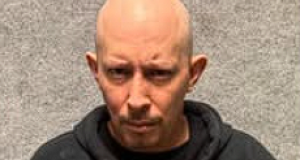
Jessie Hoffman Jr.'s preferred ways to die are not available in Louisiana.
Hoffman was scheduled to die by nitrogen hypoxia on March 18. But, this week, a judge put his execution on hold after Hoffman's attorneys argued that the method was cruel and violated his constitutional rights.
Hoffman faces death for the 1996 rape and murder of 28-year-old Mary "Molly" Elliott, CNN reported. In a court filing, Hoffman has asked that his sentence be carried out in a more "humane" way. Some suggestions listed in the filing include death by firing squad or using a drug cocktail that might be used in an assisted suicide.
"Hoffman has clearly demonstrated that he is substantially likely to prevail in his assertion that nitrogen hypoxia superadds pain and terror as compared to firing squad," Axios quoted Chief U.S. District Judge Shelly Dick's ruling.
Currently, Lousiana offers three ways to die: Nitrogen hypoxia, the electric chair, and lethal injection. However, the state has been embroiled in legal battle for decades related to the drugs used in lethal injection and their procurement, CNN reported.
Firing squad is not an option in Louisiana, but the method was used recently in South Carolina. Brad Sigmon, 67, was executed by firing squad earlier this month.
"The firing squad is certainly faster — and more violent — than lethal injection. It's a lot more tense, too. My heart started pounding a little after Sigmon's lawyer read his final statement. The hood was put over Sigmon's head, and an employee opened the black pull shade that shielded where the three prison system volunteer shooters were," Journalist Jeffrey Collins wrote for the Associated Press after witnessing the execution.
"About two minutes later, they fired. There was no warning or countdown. The abrupt crack of the rifles startled me. And the white target with the red bullseye that had been on his chest, standing out against his black prison jumpsuit, disappeared instantly as Sigmon's whole body flinched," Collins wrote.




